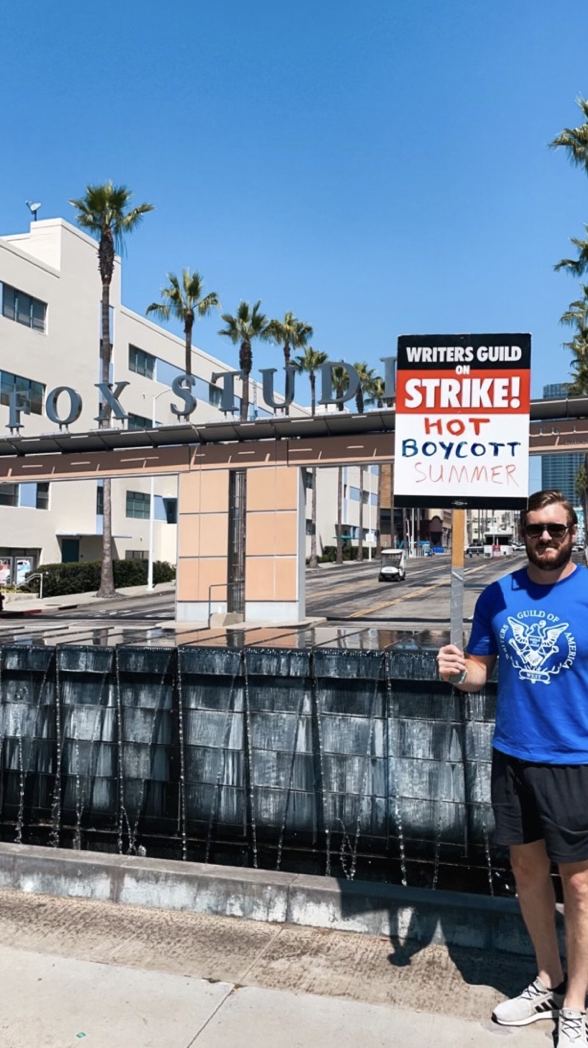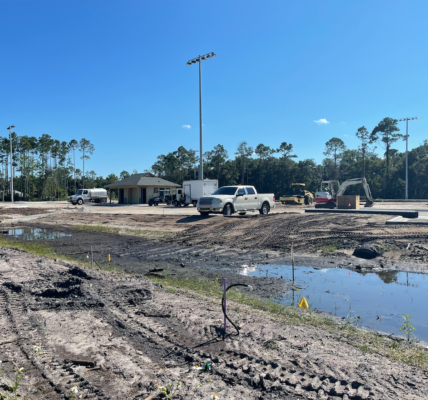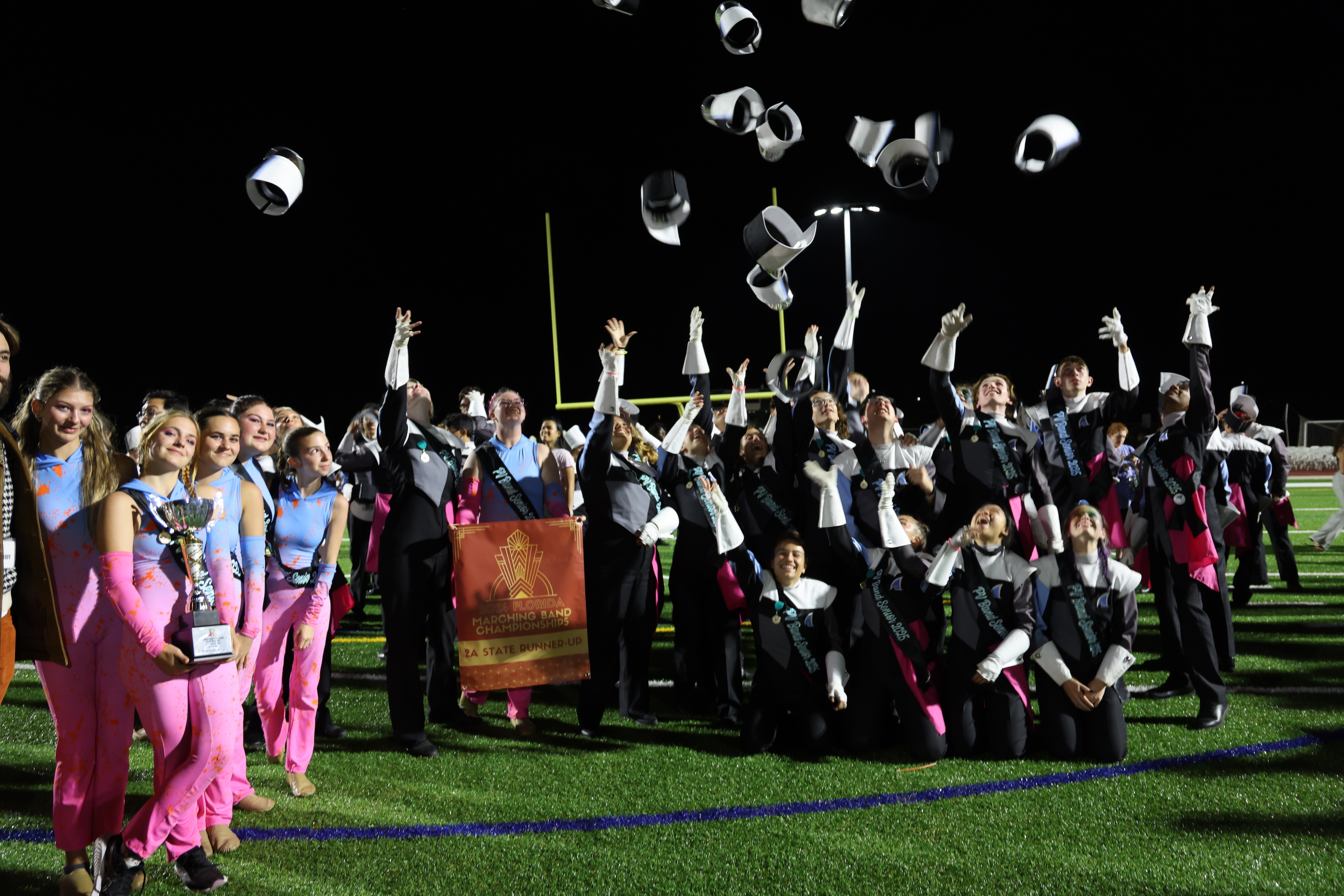By Phillip Berkwit
Both Hollywood writers and actors have been on strike. According to vox.com, “Some 11,500 Hollywood writers, represented by the Writers Guild of America (WGA), walked off the job on May 2 and have been on strike since then.” This event is huge, but writers are not the only ones on strike. “Then, 160,000 actors under the Screen Actors Guild and American Federation of Television and Radio Artists (SAG-AFTRA) went on strike as well on July 14. Both are stuck in contract negotiations with the Alliance of Motion Picture and Television Producers (AMPTP), which represents Hollywood studios and production companies.”
The Writers Guild of America (WGA) and The Screen Actors Guild – American Federation of Television and Radio Artist (SAG-AFTRA) have been on strike against the Alliance of Motion Picture and Television Producers. (AMPTP) These strikes have brought up familiar-sounding issues like residuals or payments, along with novel ones like AI. These strikes are having noticeable affects in the entertainment business and the current treatment of writers and actors.
” …Two of the other biggest points of contention in the ongoing negotiations between the WGA and the AMPTP are room size minimums and room length minimums.”
Kevin Hanney
According to Fortune.com, “The guild wants to prevent raw, AI-generated storylines or dialogue from being regarded as “literary material” — a term in their contracts for scripts and other story forms a screenwriter produces. This means they would not be competing with computers for credit — or for an original screenplay Oscar.” AI is a huge issue for writers. The risk of writers being replaced by AI, or having to compete with it has become a true possibility which the WGA is obviously not happy with. SAG-AFTRA has found similar issues with the use of AI in entertainment. According to Today.com, “The unions worry that text generators like ChatGPT could write screenplays and actors’ images could be used to create characters without any humans involved.” AI has continually been growing in controversies and its effects on jobs has become a very current issue.
“So two of the other biggest points of contention in the ongoing negotiations between the WGA and the AMPTP are room size minimums and room length minimums. When a new series gets greenlit, the studio will staff a writers room with a certain number of writers for a certain number of weeks. In the last contract between the WGA and the AMPTP, there were no minimums. So during the pandemic when writers rooms went virtual, a lot of studios started greenlighting shows and hiring on “mini rooms” — writers rooms that consist of a small number of writers who have to write all of the episodes in fewer weeks. Essentially, it’s a way for the studios to save money,” explained Kevin Hanney, a Class of 2011 Ponte Vedra High School student and current writer on strike. He has worked for studios like Disney, Netflix, and Paramount.
“So the WGA is fighting for this next contract to include each show to have a minimum number of writers to be hired on for a minimum number of weeks to write the scripts, because the big fear is that—if we don’t get that and we don’t get restrictions on AI being used in writers rooms—then studios will be able to greenlight a show and then hire on one or two writers to use AI to write the scripts as quickly as possible. If that happens, there will be so few jobs that screenwriting won’t be a sustainable profession.”
In a survey of 38 Ponte Vedra High School students, about 61 percent effectively said yes to being discouraged from watching any type of entertainment if it were written by AI or created by it in any major way. ‘AI does not make as good shows as humans do. It can only think what it’s programmed to think,’ explained Xander Grant, a current junior. However, not every student was completely against the idea of AI. ‘People can find a balance,’ claimed Sam Shneider, a current sophomore. The WGA does not want to fully ban AI in its entirety when it comes to entertainment. According to Variety.com, “Heading into negotiations, the top WGA leaders did not see AI as one of their main issues. Instead, they planned to focus on TV staffing and other core economic concerns. The only public hint that AI would even be mentioned in the talks came on Feb. 27, when the guild revealed a long list of agenda items, including a proposal to “regulate” the use of AI technology – not “ban” it.”
AI has continued to be a controversial topic, but it is far from the only reason that the WGA and SAG-AFTRA are striking. Streaming and its effects on the residuals of writers and actors has become another huge issue in the strikes. According to ScreenRant.com, “While residuals aren’t the biggest sticking point, it’s the topic that gets the most attention, largely because of the impact of the streaming revenue model’s impact on traditional pay structures for writers and actors. Historically, residuals were a fairly straightforward calculation: all eligible members of the cast and crew of a movie or TV show earned a percentage of revenue generated by the project, so higher box office earnings for a movie meant everyone earned more, and higher viewership for a TV show meant everyone earned more.” However, this system has been changing in recent times. “With streaming, most writers and actors are paid a flat fee, regardless of a project’s performance.” The popularity of streaming has made huge changes to entertainment. Million-dollar movies and tv shows are now being made for streaming services, without any theatrical release or use of cable television. However, through it, writers and actors have been getting payed much differently and possibly much less than they were in the past. “On one hand, the introduction of streaming has been a good thing. Back in the day, television writers wrote for either broadcast or cable. When streamers came along, there was a lot more television being made and, in turn, a lot more writing jobs became available,” explained Hanney.
“But on the other hand, the big problem with streamers is that their shows are under “new media” in our (the WGA’s) previous contract with the Alliance of Motion Picture and Television Producers (AMPTP). Essentially, when a show is on cable, the writer(s) for each episode of that show would receive residual payments that align with how popular the show is, how many times it’s rerun on TV, if it’s syndicated, etc. If a show became really popular, the writers for that show would receive higher residual checks for years after that show initially aired,” explained Hanney on the topic of streaming.
The writers and actors strike is an ongoing event in the entertainment industry. Until an agreement can be reached, Hollywood is not going to be in its best shape. As explained by the Washington Post, ““Spider-Man: Beyond the Spider-Verse” and “Ghostbusters: Afterlife” are some of the latest casualties of the Hollywood strike, as studios are forced to delay major projects due to a walkout by tens of thousands of actors and writers.” Delays or pushbacks are inevitable as the strike continues. Until every union can find a compromise, agreement, or some type of conclusion, it is likely that Hollywood and entertainment will take a beating.
“This is a really pivotal moment in time in the entertainment industry for both writers and actors. This is the first time that both the actors and writers are on strike together since 1960, when Ronald Reagan was the president of the Screen Actors Guild (SAG). In fact, prior to the strike in 1960, residuals didn’t even exist — studios agreed to residual payments after the actors went on strike for five weeks. Both the actors and the writers are currently striking for AI restrictions and increased streaming residuals, and it’s been really awesome to see the solidarity with so many writers and actors out on the picket lines together,” stated Hanney on the topic of whether a Ponte Vedra student should even bother with being an actor or writer for Hollywood if changes are not made.
“But at the same time, the current WGA strike has surpassed the length of the 2007 strike that lasted 100 days, and there’s a belief that this strike could go into 2024. As a writer, it’s obviously tough to not be able to work, especially on the heels of a pandemic that disrupted the industry as much as it did. But it’s incredibly important for both writers and actors to dig their heels in on certain issues so that screenwriting and acting are sustainable careers in Hollywood for years to come. Changes certainly have to be made, and I (along with the thousands of writers and actors that have been out on the picket lines every day for the past 100+ days) believe they will be,” stated Hanney.





